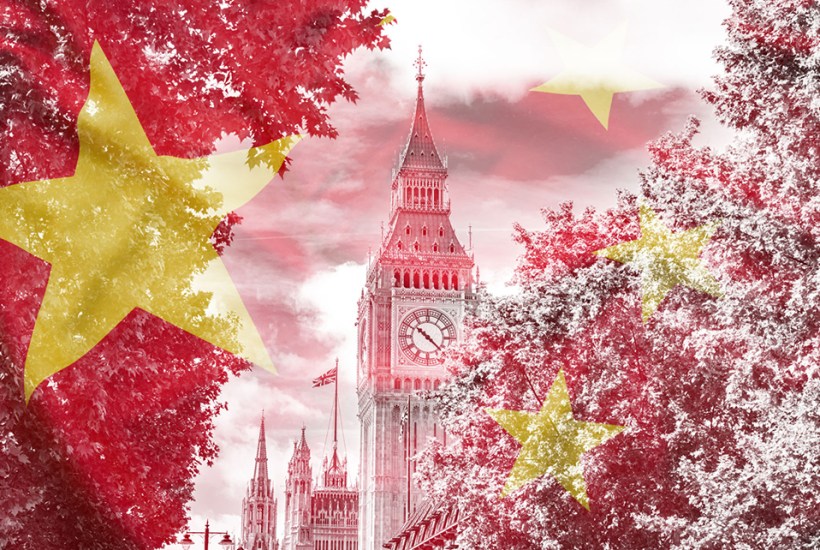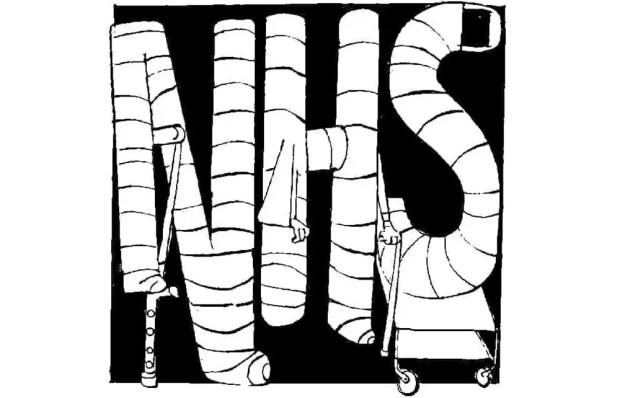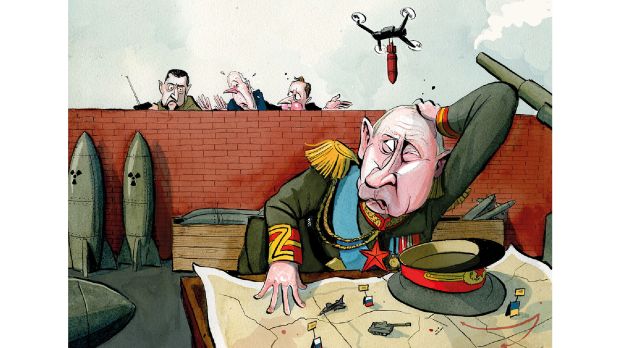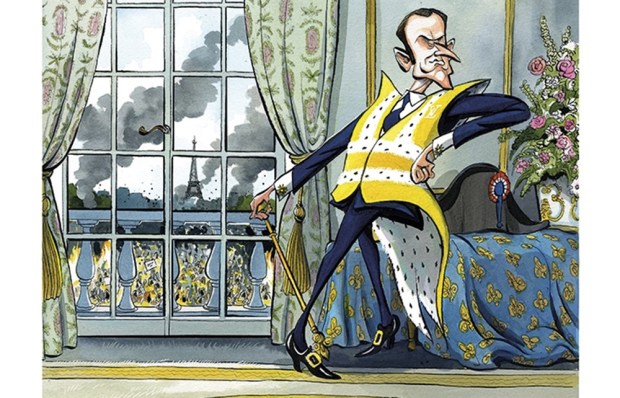On Monday, I was surprised to discover a photo of myself in the papers next to a parliamentary researcher who had been arrested on suspicion of being a ‘Chinese agent’. The photo was taken in February at a panel in parliament entitled ‘Defeating the dictators’. The man and I are both twentysomething China watchers who work in Westminster. I’d got to know him in a professional capacity, but every so often, we had a drink together or hung out at a friend’s flat. It was only when I saw reports of his arrest that I realised I hadn’t heard from him since an evening six months ago when we teamed up to play Codenames, the board game in which rival spymasters race to rendezvous with their agents. We smashed the other team.
According to reports, he and a second man in his thirties were arrested in March. He has not yet been charged and has protested his innocence. ‘Given what has been reported, it is vital that it is known that I am completely innocent. I have spent my career to date trying to educate others about the challenge and threats presented by the Chinese Communist party,’ he said in a statement. The accusations are that he used his influence to soften criticism of China, while discrediting others. It was reported that sensitive (but not classified) material had been exchanged. I couldn’t believe what I was reading.
It’s true that if he had been working as a Chinese asset, he could have been useful, given the access he had. He was linked to senior Tories such as Tom Tugendhat, now the security minister, and the chair of the Foreign Affairs Select Committee, Alicia Kearns. A British former senior intelligence officer I know tells me that it’s not unusual for intelligence services to sponsor someone at a junior level, and then help them climb the ranks. The Chinese do this, he says, but so do ‘the CIA and other intelligence services’. In recent decades, Chinese espionage has become less centralised. Whereas the former premier Zhou Enlai had to sign off on the two-decades-long honey trap on a French diplomat that was the inspiration for the David Cronenberg film M. Butterfly, the officer tells me: ‘I don’t think Chinese intelligence services are today subject to any restraints when it comes to operations against foreign states.’
But the question that has bothered me in the past few days is this: if the allegations are true, what could possibly motivate someone to do such a monumentally stupid thing? I was asked a similar question by a script-writer back in June. He was working on a television drama about a British-born Chinese spy managing to infiltrate the British elite. How would something like that happen, the scriptwriter asked me. What would motivate a British citizen to do this? What kind of back story would be believable? As thrilling as the storyline seemed, it felt far-fetched. Yet here we are, supposedly with almost the same events unfolding in Westminster.
I told the scriptwriter that if I had to hazard a guess (and I’m by no means an expert on espionage), a young Brit could be recruited via a short scholarship to an elite Chinese university (perhaps Peking or Tsinghua). These places happen to be feeding schools for future leaders of the Chinese Communist party. A bright but naive student could easily become exposed to CCP influence. Even so, it would surely require quite some persuasion to engage in something so dangerous as espionage, or at least so I thought.
‘Everybody can be recruited in the right circumstances,’ the officer tells me. ‘It’s about asking the right questions to the right people at the right time.’ A recruit could be charmed with a compelling narrative of Chinese culture or persuaded China was wronged by western imperialism. Money or sex could be a factor. If there is some deep-seated anti-Americanism, this could be developed into pro-communist sentiment. ‘The recruitment of every intelligence agent is individual to the person involved,’ says the officer.
Of course, not everyone who visits China, learns Chinese or spends time in Chinese institutions is compromised. In fact, Britain desperately needs more people who understand China working in its institutions. According to a Freedom of Information request made by The Spectator in 2021, there are only 41 British diplomats who speak Mandarin at the highest level in the entire Foreign Office, four fewer than in 2016. Compare this with the thousands of Soviet-ologists who worked for Britain during the Cold War. The gap is more alarming when you consider just how many Chinese diplomats speak fluent English. I’ve met several young Brits who can speak and read Chinese, but they tend to end up in the private sector because there aren’t enough jobs in government, and probably because the pay is so much better. It’s these people who will increasingly find themselves viewed suspiciously after this spy story.
How to decide who is loyal? It may be time to revisit the vetting procedures surrounding parliament, especially for anyone who works on foreign policy. It should be made very clear to anyone in Westminster where the line lies between above-board information-sharing and covert dalliances. Could the parliamentary researcher have been a useful idiot, not quite realising the seriousness of what he was doing?
The wrong reaction, though, would be to assume that people with experience of China are already compromised, or that those who advocate a more sophisticated approach to the country, as the researcher in question did, must have ulterior motives. I would say this, though, wouldn’t I? This is exactly the mission of my podcast, Chinese Whispers, where I try to contextualise and explain China’s complexity. Sometimes that means challenging the West’s assumptions about the country in an uncomfortable way.
I’m still shocked that someone I know, who seemed so ordinary, could be accused of being a Chinese agent. But this episode shouldn’t be used as an excuse to target all things Chinese. Instead, we need to understand better how China and its spies really operate.
Got something to add? Join the discussion and comment below.
Get 10 issues for just $10
Subscribe to The Spectator Australia today for the next 10 magazine issues, plus full online access, for just $10.
You might disagree with half of it, but you’ll enjoy reading all of it. Try your first month for free, then just $2 a week for the remainder of your first year.














Comments
Don't miss out
Join the conversation with other Spectator Australia readers. Subscribe to leave a comment.
SUBSCRIBEAlready a subscriber? Log in